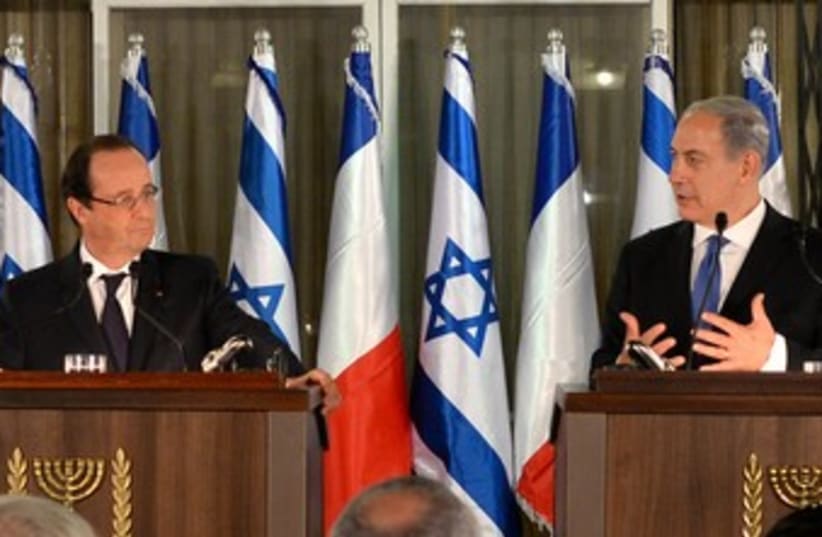Netanyahu to Hollande: Israel will not be bound by 'bad' agreement on Iran
Prime Minister says a good deal would dismantle Iran's ability to prepare fissile material for a nuclear bomb; French president says France demands guarantees Iran will abandon nuclear weapons program.
